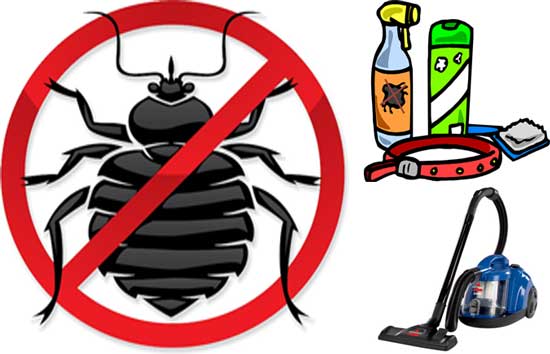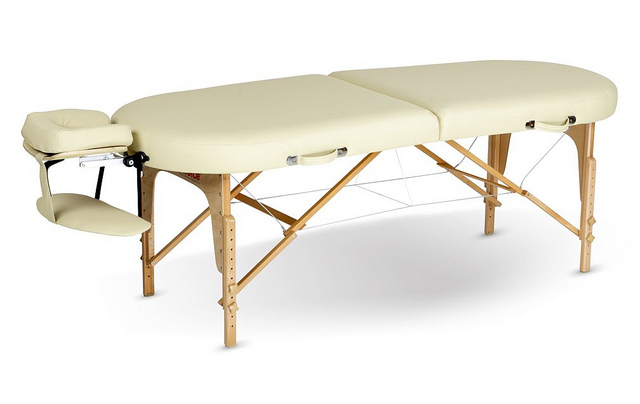Baby sleeping tips will help your child learn best through routine. Every night, right before bed, I would conduct this little “going to bed” ritual. I would give her a bath, get her dressed in her jammies, read her a story, and then I nurse her until she is asleep. I would then place her in her crib. At first, she cried, so I continued nursing her until she was better and tried to put her down again.
As the months went by, I would end the nursing earlier and earlier until she was comfortable being put in her crib, before she was completely asleep. My daughter is now almost one year old. I continued this ritual every night, except she now tells me when she’s ready to be laid down.
All Pre-bed Activities Should Be Spent in The Baby’s Room
 This is one of the most effective baby sleeping tips, as your baby gets older he will learn through association. If every night you go into her room to get ready for bed, she will understand that it’s time to go to sleep. Her bedroom should be for sleeping only. The last thing you want is for your baby to associate her bedroom with play time.
This is one of the most effective baby sleeping tips, as your baby gets older he will learn through association. If every night you go into her room to get ready for bed, she will understand that it’s time to go to sleep. Her bedroom should be for sleeping only. The last thing you want is for your baby to associate her bedroom with play time.
Tell Your Baby Every Night “When It is Time to Go to Sleep” Even in the early months, if you say this every night, your baby will associate you saying “it’s time to go to sleep” with sleeping. Of course, he won’t understand right away, but when he does, he will not argue.
Some babies need more attention than others. I do not agree with letting a baby cry themselves to sleep. Doing so may be interpreted by the baby as you are not there for him. If you are spending sleepless nights, rocking and carrying you baby - trying to get her to sleep, she is not ready to go to sleep on her own.
Try letting her sleep with you and try again in a couple months. Many parents are finding the concept of Attachment Parenting preferable.
Baby Sleep Problems
Does Your Child Have a Sleeping Problem?
amzn_assoc_placement = “adunit0”; amzn_assoc_search_bar = “true”; amzn_assoc_tracking_id = “taphs-20”; amzn_assoc_search_bar_position = “bottom”; amzn_assoc_ad_mode = “search”; amzn_assoc_ad_type = “smart”; amzn_assoc_marketplace = “amazon”; amzn_assoc_region = “US”; amzn_assoc_title = “Shop Related Products”; amzn_assoc_default_search_phrase = “baby clothes”; amzn_assoc_default_category = “All”; amzn_assoc_linkid = “851ac5f1947efcb49502529168b7f4a1”;
When your child’s sleep patterns cause a definite problem for you or for him, then he has a sleep problem. This is true, for example, if he complains of inability to fall asleep, or if you find you must be up with him repeatedly during the night.
Sleep Problems…
Sleep problems such as sleep terrors, sleepwalking, or bed-wetting are also readily apparent and quite easy to identify as sleep disorders. But others may be less obvious. You may not recognize that your child even has a problem, or you may not realize that the problem he does have should be considered a disorder that can and should be treated. You may not be aware that loud snoring every night, besides keeping you awake, may be a warning that your child is not breathing satisfactorily while asleep. Possible sleep abnormalities includes other symptoms that should be identified and treated include:
- Frequent difficulty falling asleep at bedtime
- Waking during the night with inability to go right back to sleep alone
- Waking too early or too late in the morning
- Falling asleep too early or too late in the evening
- Being irritable or sleepy during the day
One of the least obvious of sleep problems is that of insufficient sleep. There is no absolute way of measuring whether the amount of sleep your child gets per day is appropriate. We can watch each child’s behavior during the day closely to see if he seems excessively sleepy or cranky. But the symptoms of insufficient sleep in a young child can be very subtle.
If your 2-year-old sleeps only eight hours at night but seems to be happy and functioning well during the day, it is tempting to assume he doesn’t need more sleep.
But eight hours is rarely enough sleep for a 2-year-old, and with the proper intervention he can learn to increase his amount of sleep time considerably.
You may begin to notice an improvement in his general behavior and only then will you be aware of the subtler symptoms of inadequate sleep that actually were evident before you adjusted his sleep schedule.
Now your child will probably be happier in the daytime, a bit less irritable, more able to concentrate at play, and less inclined to have tantrums, accidents, and arguments.
It is also difficult to decide when nighttime waking is “abnormal.” A young child from 6 months to 3 years may be getting adequate amounts of sleep at night, even though he wakes several times during the night and has to be helped back to sleep.
Parents will say to me, “Tell me if this is normal. If it is, I will continue getting up; but if it is not, then we would like to do something about it!” I assure them that most healthy full-term infants are sleeping through the night by 3 or 4 months of age. Certainly by 6 months all healthy babies can do so.
If your baby does not start sleeping through the night on his own by 6 months at the latest, or if he begins waking again after weeks or months of sleeping well, then something is interfering with the continuity of his sleep. He should be able to sleep better, and in all likelihood his sleep disruption can be corrected.
How well your child sleeps from the early months affects not only his behavior during the day but also your feelings about him. I have often heard a parent say, “He is such a good baby. I even have to wake him for feedings.” Although the parent is saying the baby is a good sleeper, the words imply that the baby is “good” in the moral sense. It is easy to see that this distinction will influence how you relate to your child.
4 Baby Sleeping Tips for Easing Bedtime Struggles
Getting a toddler to sleep is never an easy task. Most children this age resist going to bed, especially if there are older siblings who are still awake. Despite their protests, toddlers and preschoolers usually need 10 to 12 hours of sleep each night.
Here are some tips that can help you encourage your toddler to maintain good sleep habits and ease the transition to bedtime.
- You may give your child a calming activity that she/he likes before bedtime. For many, it’s reading, singing, or a warm bath. Sticking to a regular routine will help your child understand that it will soon be time to go to sleep. Limit television viewing, video games, and active play shortly before bed.
- Set a consistent schedule. Decide on a time for your child to go to sleep and make bedtime the same every night. His sleep patterns will adjust accordingly.
- Encourage your child to take a favorite teddy bear or special blanket to bed. These comforting items often help children fall asleep — especially if they wake up in the middle of the night.
- Make sure your child is comfortable. Make sure that she is comfortable with the temperature in her room and that she’s wearing pajamas that fit well. She may also feel more at ease with a drink of water, a night-light, or the door left slightly open.
Baby Sleep Habits
When you bring your baby home from the hospital, you’ll most likely find that she has irregular sleep cycles, and that she sleeps a great deal of the time — an average of 16 to 17 hours per day! She may only sleep for one- or two-hour intervals, however. And as baby matures, you’ll see changes in her sleep cycles and need for sleep.
But can you influence your baby’s sleep habits early on?
- Keep her calm and quiet. When you have to feed or change baby during the night, don’t stimulate her too much, or wake her with movement and noise. With less stimulation, she can easily fall back to sleep.
- Limit how long baby sleeps during the day. If baby sleeps for long intervals of time during the day, he’ll be more likely to wake during the night.
- At first signs of drowsiness, put baby down to sleep. It’s best for baby to learn early on how to relax herself and drift off to sleep. When baby is rocked and held as she goes to sleep, she may come to rely on you to help her fall back to sleep when she wakes up in the middle of the night. She needs an opportunity to practice on her own in order to learn how to soothe herself back to sleep when she wakes periodically at night.
- Avoid the use of a pacifier at bedtime. If baby gets used to going to sleep with a pacifier and uses it to soothe himself to sleep, it may become habitual. Pacifiers are best used to satisfy the baby’s sucking reflex, not to help him get to sleep. If your baby does falls asleep with the pacifier in his mouth, gently remove it and then put him to bed without it.
- Delay your reaction to baby’s fussing. Beginning at about 4 to 6 months of age, it’s a good idea to wait a few minutes before going in to check on baby when she wakes. It’s likely that she’ll settle herself and go back to sleep shortly after waking anyway.If her crying continues, quietly check on her. Avoid turning on lights, picking her up, rocking her, or playing with her. If she continues to cry, or if her cries increase in intensity, wait just a few minutes longer and check on her again. If she just can’t seem to settle down, try to think about what might be troubling her. Is she hungry, wet or soiled, feverish, or otherwise uncomfortable? Tend to her needs, and it’s likely she’ll soon settle in for some more sleep.
Help your infant develop good sleep habits:
 Your baby doesn’t pay attention to whether it is day and night. But, when your baby is a few weeks old, you can start teaching them the difference between morning, night, nap time and beddy-bye-time.
Your baby doesn’t pay attention to whether it is day and night. But, when your baby is a few weeks old, you can start teaching them the difference between morning, night, nap time and beddy-bye-time.
During the day keep daytime noises at their normal level, wake your baby when it’s time for her feedings, play with her and talk to her. At night turn down the lights, the noise, and your voice when talking to her during her feedings and changes.
When your baby is about 1-2 mos. old, put her to bed when she is showing signs of sleepiness but is still awake. Let her fall asleep on her own, you may rock and/or sing to her just while she is awake.
Keep a semi-scheduled bedtime routine. When it’s bedtime, show your baby it’s time to settle down by performing the same steps every night.
Here are some simple bedtime routine steps to try:
- Start with a bath or just washing her hands and face.
- Change diaper and put on pj’s.
- Singing a quiet lullaby is soothing to the baby when it is a familiar voice.
- While you prepare your baby for bed, if you prefer not to sing, put in a tape/cd of baby-friendly sounds on low volume and leave it on after you leave the room.
- Cuddle and rock your baby before you lay her down to bed. Try to make it short and put your baby in her crib while she is still awake.
Tricks to help your baby sleep
For the first 2-3 months, your baby needs to wake up to eat, but some babies jerk themselves and wake up before they are ready to eat. Try wrapping your baby snuggly in a receiving blanket before putting her down for bed. It makes newborns feel secure and ready for bed.
Try a pacifier. The sucking is soothing to some babies, but not all. If you encounter too many problems with the pacifier getting lost, or waking baby when it falls out - you should wean her from it.
Leave one special toy in the crib for your baby to look at, talk to and hold onto. Too many toys can be a distraction.
Sleeping tricks to avoid:
Putting rice cereal in her bottle at night to make her feel full, does not promote sleep.
Rocking your baby is very soothing and can put your baby to sleep. But if you rock to put her to sleep, she’ll want you to rock her every time she wakes up - even at 4 a.m.
Letting your baby fall asleep with a bottle or nursing before bed is not a good habit to make. When your baby wakes up at night, she’ll expect you to feed her.
Conclusion
Encourage good sleep habits by creating a consistent sleep routine that ends before your baby falls asleep, put her to bed awake, and make sure that a favorite toy will be there for her at night when she wakes up.
More on prettylittleus.com
[columns_row width=“third”] [column]Baby Products
√Bed Rails[/column] [column]New Mom Essentials
♦Maternity Leggings[/column] [column]Others
♥Best Adderall Alternative[/column] [/columns_row]



